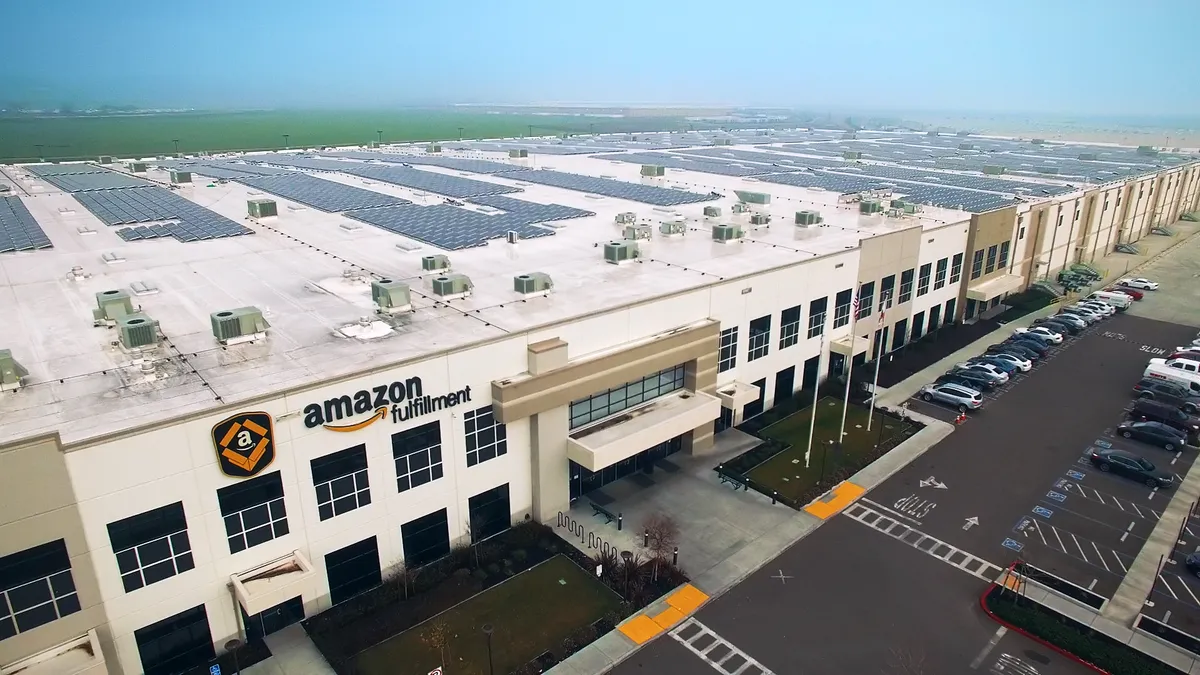Dive Brief:
- Amazon's plans to shift its free Prime two-day shipping to one-day shipping for members has some wondering what the change will mean for workers. The e-tailer's CFO announced the plan on a call with analysts last week, according to HR Dive's sister publication Retail Dive. Amazon will invest $800 million to facilitate the change, which will occur this year, Retail Dive reported.
- The announcement was met with concern from the Retail, Wholesale and Department Store Union (RWDSU), however, which cautioned that Amazon will need to hire more workers to maintain fulfillment speeds without putting the well-being of its workforce at risk.
- “With two-day Prime shipping, Amazon fulfillment workers currently face speeds of 200-300 orders per hour in 12-hour shifts. They struggle already to maintain that pace. If Amazon plans to effectively double the speed, it must also address existing workforce needs and ensure its workers are safe,” said Stuart Appelbaum, president of RWDSU, in a press statement.
Dive Insight:
As tech companies like Google have realized, transparent workplace policies can act as a check on an organization's culture. By allowing the public — including prospective recruits — to look under the hood, employers invite critique and praise alike and demonstrate a commitment to continuously improving their workplaces. However, the expectation for transparency also means that employers with poor policies and toxic culture can no longer stow their skeletons in the closet. Amazon has struggled with this in the past, with the company raising its minimum wage only to slash benefits and reports of warehouse workers urinating in bottles to maintain productivity. Recently, the Verge reported on "productivity firings" at Amazon warehouses.
HR in any industry can learn from Amazon's history. As many organizations set high goals for growth, it can put pressure on workers to be more productive, sometimes leading to burnout and turnover. Talent pros can work with leadership to ensure that expectations are reasonable and push them to invest in more workers to actualize those goals.
Along with benefits and competitive compensation, employees want work to be a meaningful experience and to know that their contributions are recognized by leadership. A recent Kforce study found that more than half of workers surveyed would sacrifice about a third of their salary to do work they enjoy. Talent pros might present these ideas to leadership as they consider any major workforce shifts, too.















